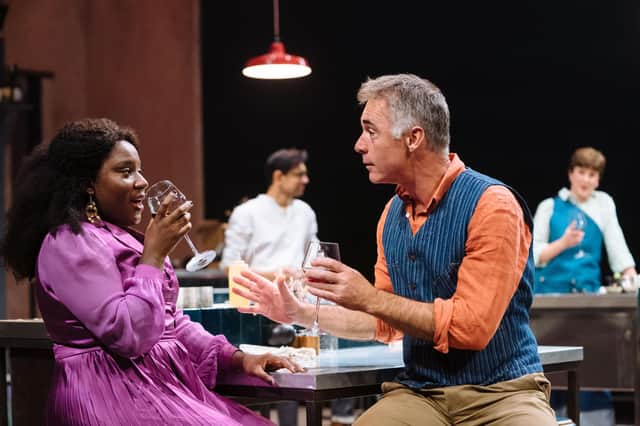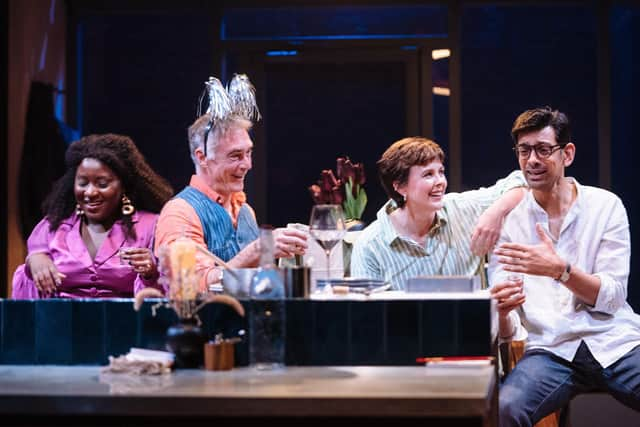Review | Never Have I Ever at Minerva Theatre, Chichester: "Needs to be seen to be believed"


But it was like entering a time capsule of my teenage years; I was strutting to TLC’s No Scrubs as I took my seat.
As the lights come up to fellow thirty-something and chef Jacq grinding to Alicia Keys while she plates up a meal at her restaurant, it becomes clear this is a playlist of her uni glory days too.
Advertisement
Hide AdAdvertisement
Hide AdIt is a difficult dinner for her and boyfriend Kas; they need to tell their investor and rich friend Tobin – visiting with his wife and their university mate Adaego – that he won’t be getting his money back, as the business has gone bust.


The simmering awkwardness gets cranked up as the night goes on, as more bottles of expensive wine are consumed and the eponymous drinking game is played. The truth soon comes out.
The university pals had a threesome while Adaego was dating Tobin.
His response is to start another game: to offer Jacq £650,000 in exchange for a moment of passion to even the score.
Advertisement
Hide AdAdvertisement
Hide AdSuddenly, the truth-telling turns into a conflict of home truths and personal truths, a clash across gender, class and race boundaries.
Pale, male and stale Tobin versus black upper-class Adaego, against bisexual working class Jacq, calling out Asian, middle-class Kas.
It becomes clear the truth – as is de rigueur – is actually quite subjective.
The audience was at this stage as fractured and tribal as the characters, using their voices and hands to endorse the character that represented them best.
Advertisement
Hide AdAdvertisement
Hide AdSpoiler: in the end, Tobin loses – but it is not a total hatchet job.
It is done with nuance and the acknowledgement that not all white men are ‘bad’.
One of the most startling qualities about this play – written by The Guilty Feminist podcaster Deborah Frances-White – is how effectively it zips from humour, anger, pathos and back again; I felt at times uncomfortable, challenged, but gripped nonetheless.
All four actors get their chance to chew the scenery, and none leave behind any splinters – but Susan Wokoma as Adaego takes the gold, mainly for her barnstorming final speech. Silver goes to Greg Wise (of The Crown and Emma Thompson-spouse fame) for fleshing out the superficially repellent Tobin.
I could chuck a whole dictionary of adjectives at this play, one of the top ones being relevant, but ultimately, it needs to be seen to be believed.
Until September 30.